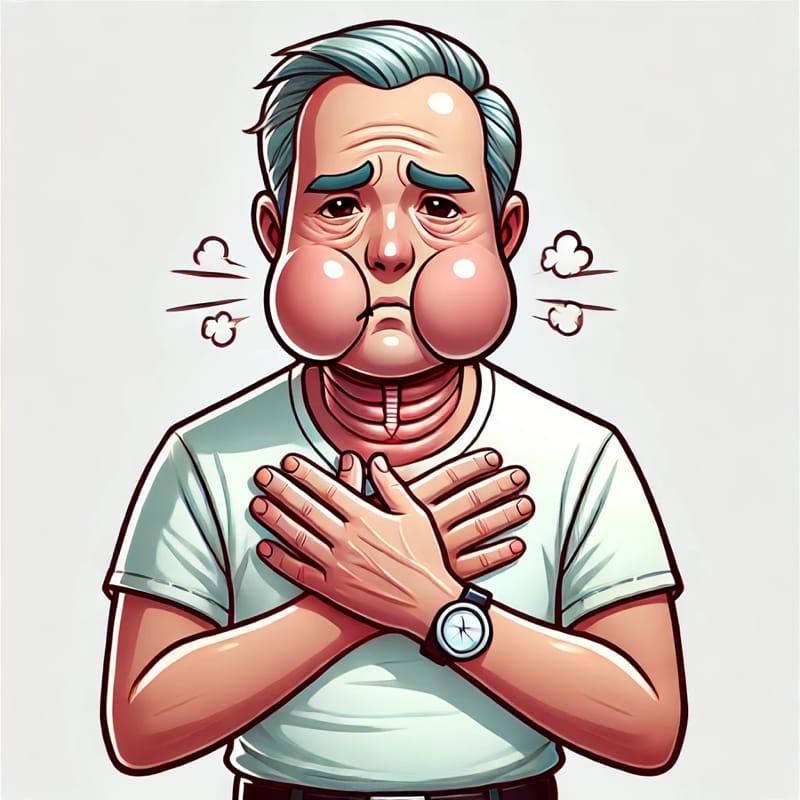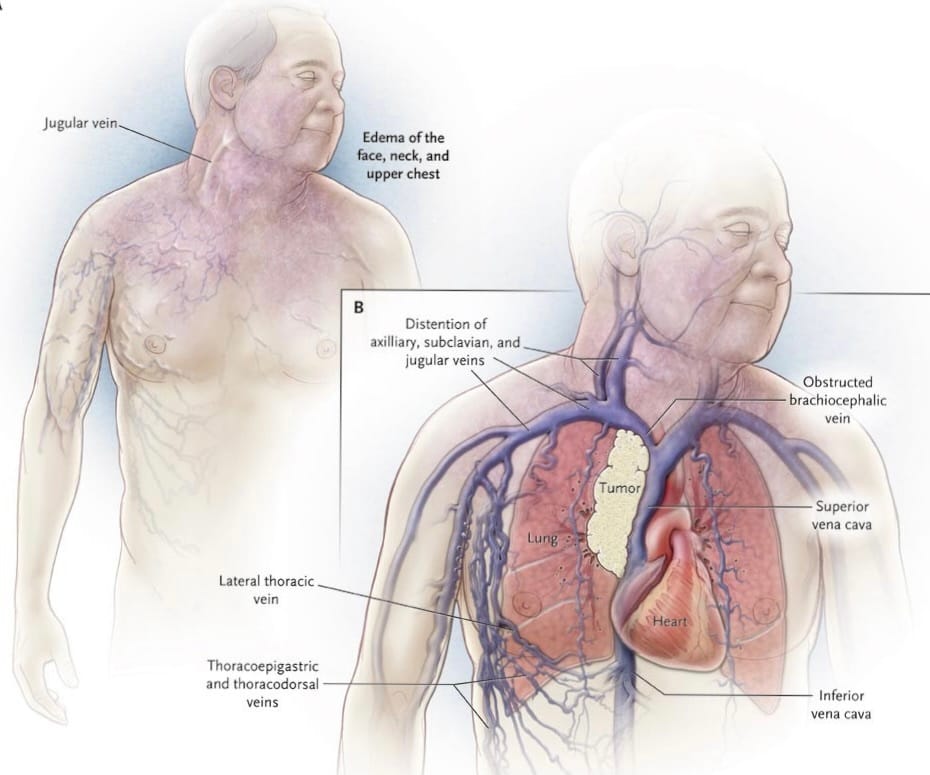- The Step 1 Newsletter
- Posts
- What is the most likely cause of this symptom?
What is the most likely cause of this symptom?
🔍 Question
A 56-year-old man presents to the clinic with a recent onset of headache and shortness of breath. He reports facial puffiness for the past two weeks along with a persistent, dry cough. He denies any shoulder or neck pain and has no known medical history. On examination, there is symmetrical swelling of the face and conjunctival edema. The pupils are equal, round, and reactive to light. Prominent veins are visible on the neck and upper chest. Heart and lung auscultation reveal normal findings, and the patient’s peripheral strength and sensation are intact.
What is the most likely cause of these symptoms?
• A. Airway obstruction
• B. Autoimmune disease
• C. Excessive hormone secretion
• D. Mediastinal mass
• E. Pericardial effusion
• F. Pleural effusion
• G. Superior sulcus tumor

Correct Answer: Mediastinal Mass (D)
⚙️Compression of Superior Vena Cava (SVC) by a Mediastinal Mass (D. Mediastinal Mass)
⬇
🧠 SVC Syndrome
⬇
⚙️
1. Venous Outflow Obstruction in SVC
⬇
↑ Venous pressure in head, neck, and upper trunk
⬇
Symptoms:
• Facial swelling (due to venous stasis)
• Conjunctival edema (↑ venous pressure in ocular region)
• Dilated neck veins (backflow of venous blood)
• Dyspnea & Cough (tracheal compression or venous congestion in lungs)
🧠 SVC Syndrome = Dam Blocking a River
• Obstruction (Mediastinal Mass) = Dam (Compression)
• ↑ Pressure behind the dam = Swelling & congestion in head/neck.

⚖️ Explanation of Other Differentials
Differential | Mechanism |
|---|---|
Airway Obstruction | Airway narrowing → Dyspnea, wheezing, stridor No stridor or localized airway symptoms. |
Autoimmune Disease | Autoimmune inflammation → Systemic signs (rash, arthralgia) Absence of such symptoms |
Excessive Hormone Secretion | Paraneoplastic syndromes (e.g., ACTH, ADH secretion) No evidence of hypercortisolism, hyponatremia, or related endocrine abnormalities. |
Pericardial Effusion | Fluid compressing the heart → Cardiac tamponade (↓ cardiac output) No pulsus paradoxus, hypotension, or muffled heart sounds. |
Pleural Effusion | Fluid in pleural space → Dyspnea, dullness to percussion Normal lung sounds, no pleural findings. |
Superior Sulcus Tumor | Apical lung tumor compressing brachial plexus or nearby structures → Shoulder pain, arm weakness, Horner syndrome No shoulder pain, Horner’s syndrome, or upper limb weakness. |
📝 Flashcards
Stay Hungry, Stay Curious!
Your Brother In This Struggle
Dr. Shoaib Ahmad

ps…Just a heads up!
We are launching a high-yield e-book "Excel USMLE Step 1: Respiratory System" next month InshaAllah.
With this e-book, you’ll be able to Excel any USMLE Step 1 question on respiratory section without fear of getting a wrong answer in just 1 week using visual charts and flashcards.

This e-book will feature:
High-yield USMLE Step 1 questions on the respiratory system.
Conceptual clarity for every question to solidify your understanding.
Problem-solving strategies to enhance your test-taking skills.
Flashcards for each question to reinforce learning.
You can pre-order now to secure your copy.
Future editions covering other systems will follow shortly.
Each e-book in the series is priced individually.
Special Offer:
61% off during the pre-order period.
Money-back guarantee if you’re not satisfied—no questions asked!
